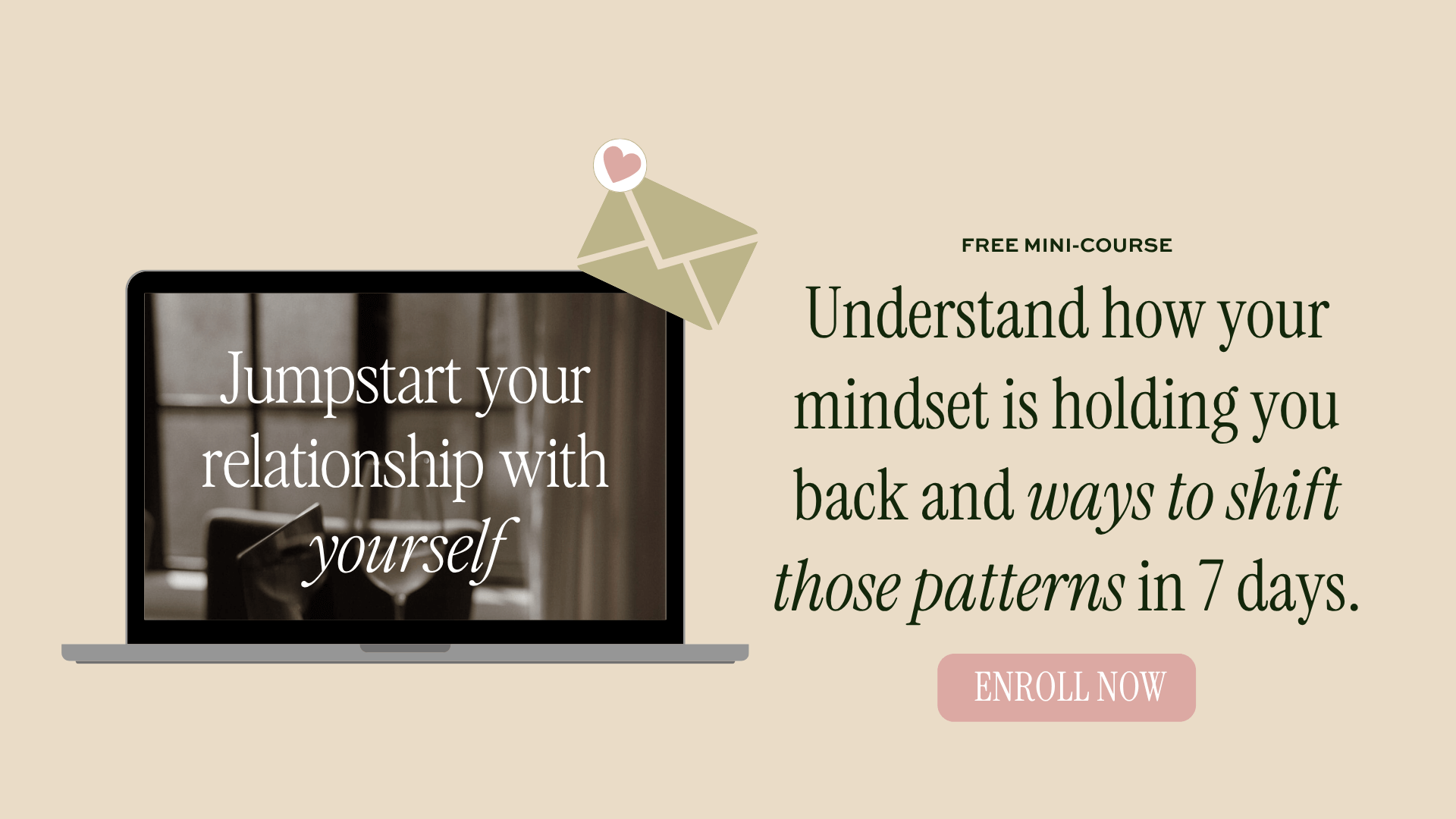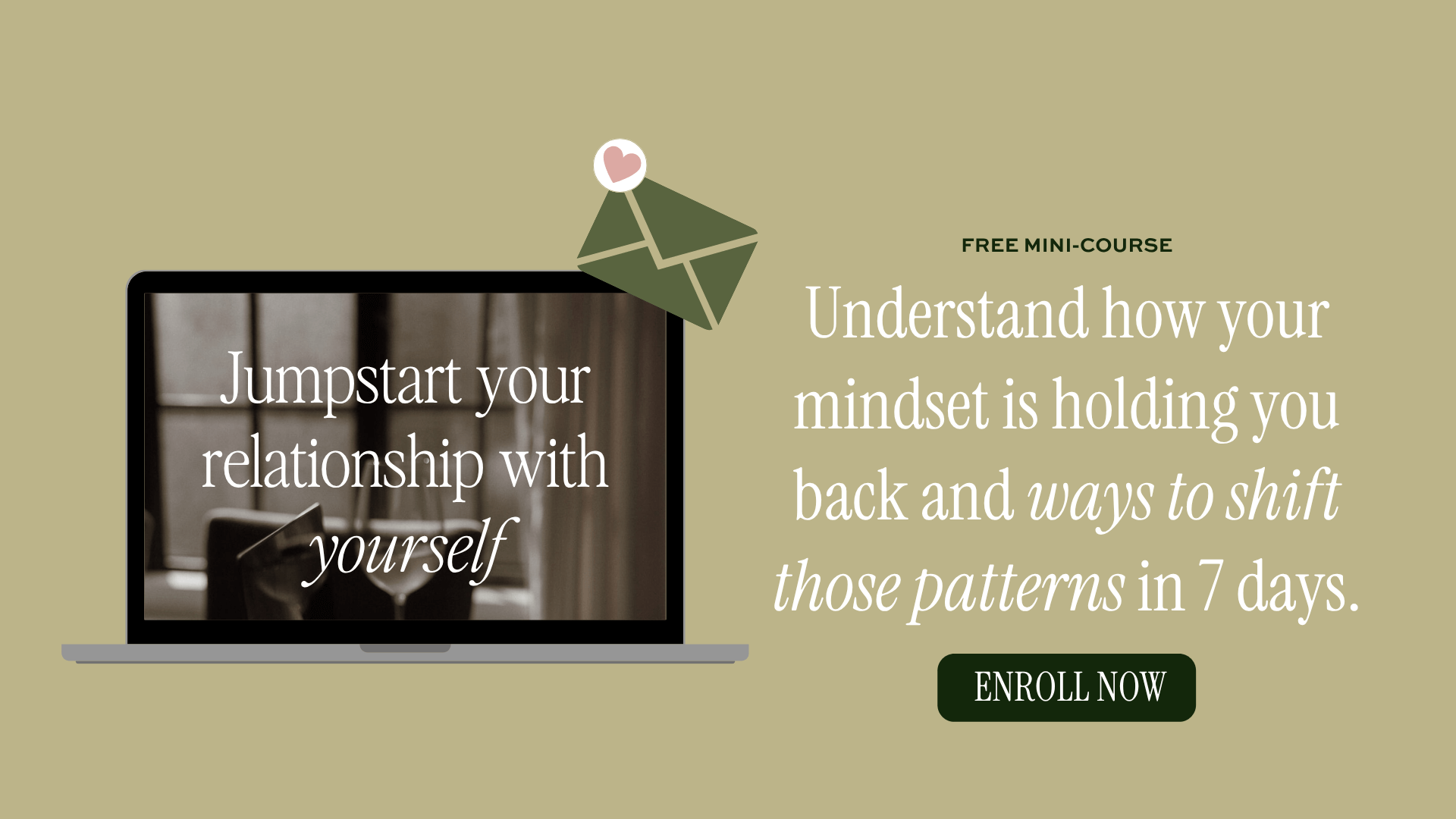Why you’re more anxious when you like them
Picture this: you just had an amazing first date. The conversation flowed naturally, you laughed until your cheeks hurt, and for the first time in months, you're genuinely excited about seeing someone again. You think you might be able to see something with this guy. But then something weird happens.
In advance of the second date, you realize your mind is spinning, spiraling into a tornado of overthinking. "What if he doesn't text back? What if I said something wrong? What if he's just being polite?" Sound familiar?
We've all been there, wondering why we suddenly transform from cool, collected versions of ourselves into anxious messes the moment we start to actually care about someone. It's one of those cruel ironies of dating that the better things go, the more nervous we become. Which is why today we're diving deep into the psychology behind dating anxiety and why it peaks precisely when we things start to go well.
Why am I more nervous when I like someone?
The phenomenon of increased anxiety when we like someone isn't just in your head (well, technically it is, but you know what we mean). There's real psychology behind why our confidence seems to evaporate the moment we become emotionally invested in a dating outcome. Understanding this pattern is the first step toward managing it and showing up as your authentic self, even when your heart is on the line.
Why you stress more when you care
Here's the thing about dating anxiety: it's directly proportional to how much we care about the outcome. Think about it like an old-school balance scale with two sides. On one side, you have "the date goes amazingly well and leads to something beautiful." On the other side, you have "lukewarm conversation and a polite but firm 'let's just be friends' text."
Before you get excited about someone's potential, it's relatively easy to stay rational. You can genuinely tell yourself, "I'll be fine regardless of how this works out." But the moment you start imagining what a relationship with this person might look like, it's like someone just dropped a 50-pound weight on the "good outcome" side of that scale.
Suddenly, you're not just going on a date anymore. You're auditioning for the role of "girlfriend" or "the one who finally gets him to commit." The stakes feel monumentally higher because now you have something to lose. That casual confidence you had when you didn't care? It gets buried under the pressure of wanting things to work out a specific way.
We see this pattern play out all the time. Clients will tell us about first dates where they felt completely themselves, cracking jokes and sharing stories without a care in the world. But by the second or third date, when they've started to develop genuine feelings, they're second-guessing every word that comes out of their mouth.
Why not caring isn’t the goal
Every dating article tells you to “just be confident.” But they conveniently don’t explain what that actually looks like. Often, what they’re recommending is a thinly veiled code for “just care less.”
But for eldest daughters especially, we are wired to care deeply about the feelings of everybody around us - that’s part of what leads to so much people pleasing.
We can’t turn off our ability to care, so what should we be focusing on? You probably won’t be surprised to hear that we recommend building confidence as the support during moments like these.
But we need to clear something up: confidence isn't a feeling. It might feel like it when on date two all that internal security seems to have been a rug pulled out from underneath you, but confidence isn’t an emotion like happiness or sadness that’s made up of a chemical reaction in our body. It’s more like a mindset, a way we see the world.
That means you can cultivate it and pull it out in moments like these when you’re spiraling because you like someone.
Confidence doesn’t guarantee that everything works out. Nothing can guarantee that. But in the moments when you’re spiraling because you really want this date to go well, confidence can help you keep things in perspective. Our founder, Samantha, puts it this way: "As someone who gets complimented on my confidence regularly, I can personally verify that what gives me strength in challenging moments isn't knowing for certain that things will go well. I've had plenty of presentations bomb and dates that were total disasters. But my confidence comes from knowing that regardless of what happens, I can handle it. The doubts and questions about outcomes don't disappear, they just don't weaken my belief in myself."
This distinction is crucial when it comes to dating because so many of us are waiting to feel confident before we put ourselves out there. We think that one day, we'll wake up and magically feel different about dating, like some internal switch will flip and we'll never feel nervous again. But that's not how confidence works.
Real confidence in dating means showing up authentically even when you're nervous. It means being able to say, "I really like this person and I hope this works out, but I know I'll be okay if it doesn't." That's a far cry from the fake-it-till-you-make-it confidence that leaves us feeling like we're performing rather than connecting.
How We Sabotage Ourselves with Stories
Here's where things get really interesting (and a little bit infuriating). The more invested we become in a dating outcome, the more elaborate stories we start creating about what different scenarios will mean about us as people.
Let's say you're really excited about a second date. Instead of just thinking, "I hope we have fun," your brain starts spinning narratives like: "If this doesn't work out, it means I'm destined to be alone forever. I always mess things up on the second date. There must be something fundamentally wrong with me that makes guys lose interest."
See what happened there? What started as normal investment in a positive outcome somehow morphed into a catastrophic story about your worth as a person. This is what we call "meaning-making," and it's confidence kryptonite.
When we attach our self-worth to dating outcomes, we're essentially telling ourselves that we won't be okay if things don't work out the way we want them to. At the end of the day, this is why we get more anxious when we like somebody - it’s because we start attaching meaning about our value to the outcome whereas in a more casual first date scenario, that’s not in play.
The goal is not to stop ourselves from caring about early dates because it’s good to be excited about something and want it to go well. But what we need to fight against is connectign the outcome of this second date (or third, or tenth) with a meaning about our value.
The tricky part is that this meaning-making often happens subconsciously. We don't sit down and consciously decide to tie our entire sense of self to whether or not someone wants a third date. It just sort of happens as we get more emotionally invested. One day we're thinking, "He seems nice," and the next day we're planning our wedding and panicking about whether he'll text back.
Where do we go from here?
Dating anxiety when you actually like someone isn't a character flaw or a sign that you're doing something wrong. It's a natural human response to emotional investment and uncertainty. The key isn't to eliminate these feelings entirely, but to change your relationship with them.
Remember, confidence isn't about feeling certain that everything will work out perfectly. It's about trusting yourself to handle whatever comes your way. When you can hold both your excitement about someone's potential and your knowledge that you'll be okay regardless of the outcome, you create space to show up authentically in your dating life.
One simple tip of how Samantha implemented this was to remind herself all the things she didn’t know about the person she was going out with. When she could name 30 things that could come up that would mean this person wasn’t the right fit for her, it helped put the situation back in perspective that this person she had just met was not the arbiter as to whether she was loveable.
The next time you find yourself spiraling before a date with someone you really like, take a deep breath and remind yourself: your worth isn't determined by whether this person chooses you. You're not auditioning for love, you're exploring whether this person deserves access to the amazing person you already are.
Frequently Asked Questions
Q: Is it normal to feel more anxious as I start to like someone more?
A: Absolutely. This is one of the most common patterns we see in dating. The more emotionally invested you become, the higher the stakes feel, which naturally increases anxiety. You're not broken or doing anything wrong, you're just human.
Q: How can I stop caring so much about dating outcomes?
A: The goal isn't to stop caring, it's to care without making the outcome mean something catastrophic about you as a person. You can be invested in wanting things to work out while still maintaining the belief that you'll be okay regardless of what happens.
Q: What if my anxiety is so bad that it's affecting my ability to be myself on dates?
A: This is where working on your relationship with uncertainty becomes crucial. Practice reminding yourself of times you've handled disappointment well in the past. Build evidence for your own resilience so that your brain has proof that you can handle whatever happens. There’s also a variety of mental health modalities that can help you manage anxiety if it’s a major pattern in your life and we’d encourage you to seek support from a professional if that’s right for you.
Q: Should I try to hide my nervousness when I'm on dates?
A: Not necessarily. Authenticity is more attractive than perfection. If you're nervous, that's okay. The key is not letting that nervousness convince you that you need to be someone different to be worthy of love.
Q: How do I know if someone is worth getting anxious about?
A: Here's the thing: your anxiety level isn't actually a good indicator of someone's worth or your compatibility. Sometimes we get most anxious about people who are emotionally unavailable because the uncertainty triggers our attachment system. Focus on how someone treats you and whether your values align, not on how much they make your heart race.





